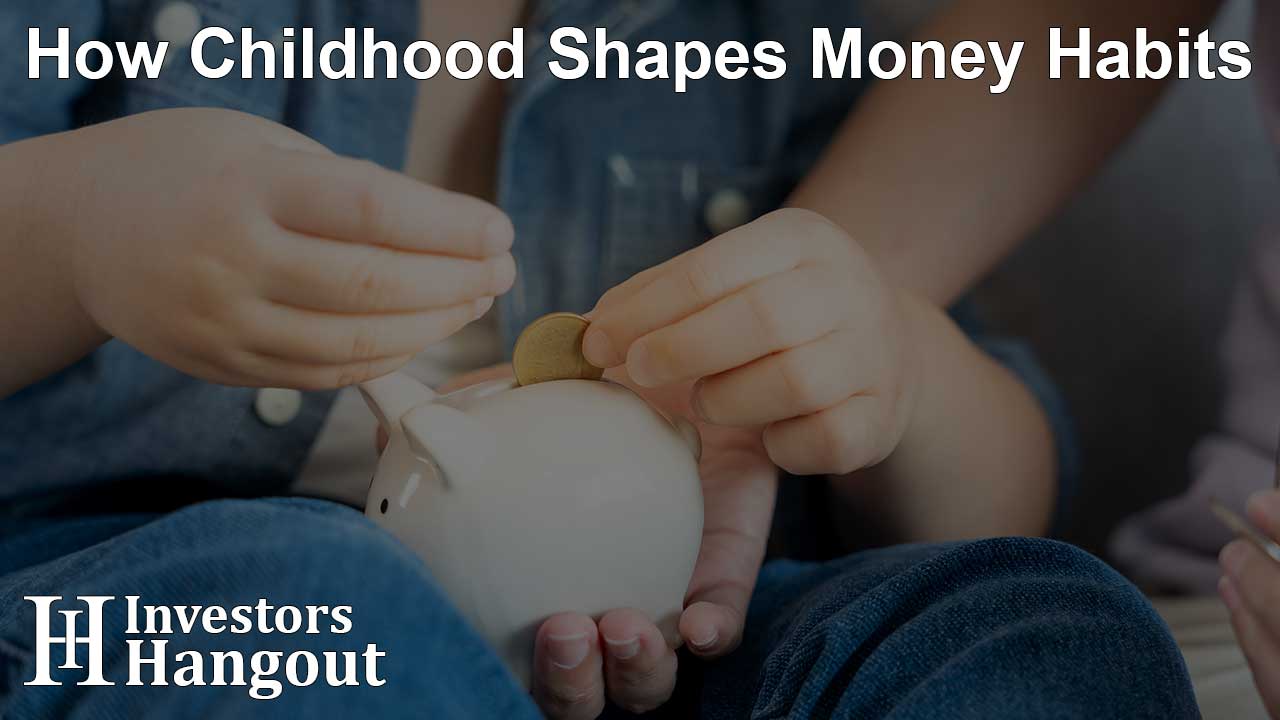The way we handle money as adults often has roots that reach back much further than we realize. Childhood experiences shape our attitudes toward spending, saving, and even borrowing in ways that last for decades. Some people grow up watching their parents manage money carefully, while others see stress, conflict, or avoidance whenever finances are mentioned. These early lessons can influence whether someone saves diligently, lives paycheck to paycheck. Fortunately, there are fixes like title loans in Waco when times get tough. However, understanding where our bad money habits come from can help reshape them into something healthier.
Parental Modeling and Everyday Lessons
Children learn by observing, and money habits are no exception. When kids see their parents saving regularly, budgeting, or talking openly about financial decisions, they absorb the message that money can be managed thoughtfully. On the other hand, if a child grows up in a home where bills are ignored or credit cards are maxed out, they may carry those behaviors forward. These patterns often become second nature, repeating themselves in adulthood unless there’s an intentional effort to break the cycle.
The Emotional Side of Money
Money is rarely just about math—it’s often tied to emotions. For some, childhood memories of financial stress create a lasting sense of anxiety whenever bills are due. Others may associate money with security because their parents provided stability and never worried openly about finances. Emotional associations formed in childhood can affect how adults react to financial challenges. Someone who links money to fear may avoid looking at their bank account, while another person might hoard savings because it feels like safety. Recognizing these emotional connections is key to building a healthier relationship with money.
Mindset Formation Early On
Childhood is when mindsets about money start to take root. Some kids are taught that money is scarce, and they carry a scarcity mindset into adulthood, always worrying there isn’t enough. Others learn that money is a tool and grow up with a more balanced perspective. Mindsets shape spending and saving behaviors, often without us realizing it. For example, a scarcity mindset might lead to overspending when money is available, just in case it runs out later. A balanced mindset, however, encourages steady choices that focus on both the present and the future.
The Role of Social Influences
Friends, teachers, and even media also shape childhood money habits. Kids may compare themselves to classmates who have nicer clothes or newer gadgets, forming early ideas about money and self-worth. Television, advertisements, and social media reinforce these messages by tying success to material possessions. These influences can create pressure to spend in adulthood, even when it doesn’t align with financial goals. Understanding that these pressures are learned—and not natural instincts—can help adults separate their self-image from their spending.
Personal Experiences With Money
Firsthand experiences, like earning an allowance, saving for a toy, or getting a first job, also teach valuable lessons. A child who learns to save for something they want develops patience and discipline. One who receives everything without effort may struggle with entitlement later on. Even negative experiences, like not having money for school activities, can leave lasting impressions. These personal encounters with money often carry forward, influencing decisions about budgeting, debt, and savings in adulthood.
Breaking the Cycle in Adulthood
The good news is that childhood patterns don’t have to define the rest of your life. While they set the foundation, adults can re-examine and reshape their money habits. This might mean creating new financial goals, learning about budgeting, or seeking guidance from professionals. It also means reflecting on childhood influences and deciding which ones to keep and which to let go. For example, someone who grew up fearing debt may need to learn how to use credit responsibly, while someone who overspends may need to practice restraint and planning.
Practical Strategies for Change
Shifting money habits starts with awareness. Journaling about your childhood experiences with money can help reveal hidden patterns. Tracking expenses provides clarity on current behaviors. Setting small, realistic goals—like building a modest emergency fund—creates momentum. Over time, these new practices replace old habits. Seeking support, whether from financial counselors, books, or trusted friends, can make the process easier. The key is patience, because changing deeply ingrained habits takes time.
Final Thoughts: Understanding the Roots
Childhood shapes money habits in powerful ways, through modeling, emotions, mindsets, social influences, and personal experiences. These lessons can serve us well or hold us back, depending on what we carry into adulthood. By reflecting on where our habits come from, we gain the power to choose which patterns to continue and which to leave behind. Financial stability isn’t just about numbers—it’s about understanding the roots of our behavior and planting new seeds for a healthier future.
About The Author
Contact Dylan Bailey privately here. Or send an email with ATTN: Dylan Bailey as the subject to contact@investorshangout.com.
About Investors Hangout
Investors Hangout is a leading online stock forum for financial discussion and learning, offering a wide range of free tools and resources. It draws in traders of all levels, who exchange market knowledge, investigate trading tactics, and keep an eye on industry developments in real time. Featuring financial articles, stock message boards, quotes, charts, company profiles, and live news updates. Through cooperative learning and a wealth of informational resources, it helps users from novices creating their first portfolios to experts honing their techniques. Join Investors Hangout today: https://investorshangout.com/

